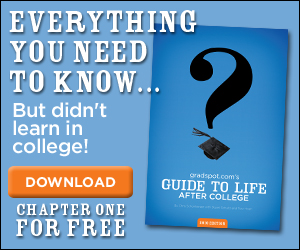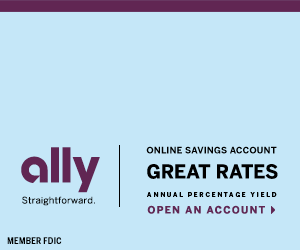Private Debt Consolidation and Debt Forgiveness

Pre-paying all your loans, consolidating through the government, and fleeing the country are not the only ways to deal with your debt. You can also ask your parents to handle it!
That's true, but it's not what this article is about. Instead, we want to talk about what you're options are if you are either A) dealing primarily with private debt, or B) unable to afford any sort of monthly payment scheme. For you, private loan consolidators or forgiveness programs may be the ticket to a life without debt.
As noted in our student debt consolidation article, it is possible to consolidate both government and private loans through commercial (e.g., non-federal) debt consolidators, but if you only have private loans than you are forced to go this route.
Private Debt Consolidators
Prior to the credit crunch, there were a ton of consolidators who dealt with private loans (as opposite to government-issued Stafford loans). In fact, many of them also offered to consolidate government loans as well. Sallie Mae and NelNet were amongst the best and most reputable, but even they have stopped their consolidation services until the credit environment improves. We aren't going to recommend any private consolidators here, but we can give you the know-how to find the best one for your situation. Needless to say, all of the information we've shared about consolidation through the government still applies, so you should review the basic of student debt consolidation before proceeding.
What should I look for in a private consolidator?
The first step towards finding a private consolidator is calling your lender (the organization that originally lent you the cash for college). You'd be surprised, but many of them may offer to consolidate your debt rather then have someone else do it. Problem solved. However, if they don't, you can always ask them for recommendations. Here are some red flags you should look out for when vetting a recommended consolidator:
- Make sure that they can never resell your debt.
- Only ask for fixed rate loans (unless you want to ride the market, but we don't think it's worth messing around with your debt).
- There should never be an early repayment penalty.
- Never give your Social Security Number until you've chosen a consolidator and are ready to consolidate. If you call a company and they won't provide you with information without getting your social, then something fishy is going on. On the flip side, don't be afraid to share how much debt you have, your interest rate, and the types of debt you carry as long as you don't give any personal information away; this information can help them determine your best options.
-
Finally, while it's not the most friendly service, be sure to check with the Better Business Bureau to see if there are any outstanding complaints against the consolidator you've found.
Ultimately, the reason why private consolidators are generally less favorable than going though the government is that the interest rates are not as competitive (especially since most lenders have exited the market and left grads with fewer financing options and thus higher rates). Check out Citibank's private loan calculator to see how unfriendly those rates really are. That said, unlike interest rates on federal loans that are determined by the market, rates on private loans are determined by your credit score. If it has improved by 50 points or more since you took out a loan (e.g., you got a well-paying job, started building credit, etc.), you may be able to work out a more favorable rate with a new lender, or ask your original lender for a reduction.
Shopping around for the best private consolidator is the safest plan of action we can suggest. But be wary of the fools gold of credit cards and lines of credit, which can compound your problems and decimate your credit rating. That said, if you have understanding parents with a better credit card than you and a little financial savvy (consolidating student debt is analogous to taking out a mortgage on a home), they can be an invaluable resource.
Forgiveness
Loans are a lot like sins—they can’t be undone, but they can be forgiven. If consolidation doesn’t work for you, consider loan forgiveness programs. These may be considered a last resort to some (i.e., you can't afford to pay so you have to work your way out of a hole). But maybe you want to join the Peace Corp or military anyway. If so, erasing your debt is a happy reward for your honorable choice; and if you are doing it out of necessity, at least you earn some good karma and avoid floundering in your financial woes.
Volunteer Work
AmeriCorps, Peace Corps, and Volunteers in Service to America all offer a percentage of student loan relief for fighting the good fight. Talk about finding reward in selfless work!
Military Service
Traditionally, people join the Service first in order to earn money for college later, but it works both ways. Under the Student Loan Repayment Program, the military will absorb up to $65,000 in qualified student loans.
Teaching
Teaching inherently has its perks: no 9 to 5, lots of holidays, and summers off. As if it couldn’t get any better, teachers in low-income or disadvantaged areas qualify for student loan forgiveness.
Law and Medical School
Think it’s impossible to pursue a law or medical degree for fear of worsening debt? Think again. Programs like Equal Justice Works and the National Health Service Corps offer generous loan forgiveness to law and medical practitioners, respectively, who serve in public interest or non-profit positions. Nurses can pick up the perk too just for being nurses.






Comments
(1)"Loans are a lot like sins—they can’t be undone, but they can be forgiven. "
I strongly agree with this. It would be ideal for everyone pays the debts they incur. What actually happens and what is ideal are rarely the same, and numerous debts go unpaid every year. During economic recession, the amount of unpaid debts usually goes up as people lose jobs and can’t pay. Thus, debt forgiveness usually happens.
POST YOUR COMMENT